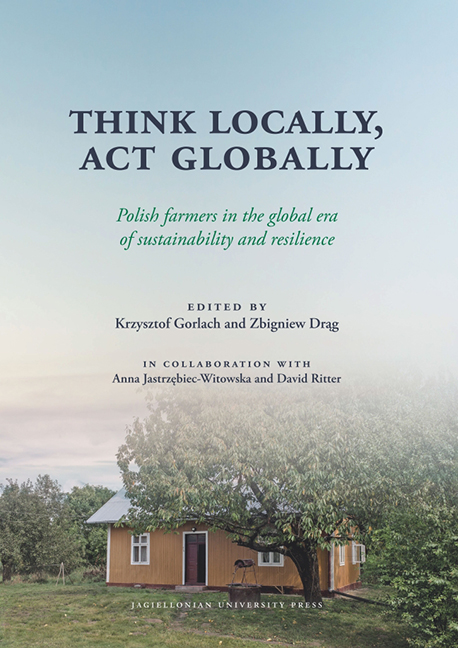Book contents
- Frontmatter
- Contents
- Family Farming: A foreword
- An Introductory Letter from the First Editor: Where the horses, cows, and even cats had their own names
- Part One Theoretical and Methodological Considerations
- Part Two Changes in the Post-Communist Transformation
- Part Three Diversification of Farmers’ Strategies
- Part Four Some Independent Studies
- Conclusion: Some Final Remarks from the First Editor
- Afterword: Renewing a Sociology of Agriculture
- Biograms
Chapter Eight - Farm Women as Participants in Social Life
Published online by Cambridge University Press: 16 July 2022
- Frontmatter
- Contents
- Family Farming: A foreword
- An Introductory Letter from the First Editor: Where the horses, cows, and even cats had their own names
- Part One Theoretical and Methodological Considerations
- Part Two Changes in the Post-Communist Transformation
- Part Three Diversification of Farmers’ Strategies
- Part Four Some Independent Studies
- Conclusion: Some Final Remarks from the First Editor
- Afterword: Renewing a Sociology of Agriculture
- Biograms
Summary
Women's Issues in the Post-modern Countryside
Currently, women's issues in rural areas are, from our perspective, determined by two sets of factors which take the form of multi-layered and overlapping social processes. They are the processes of rural development, which can be seen as transformations happening simultaneously on many levels (economic, social, political, cultural, and personal). Various entities participate in these processes and the direction of these changes indicates attempts to have a multifunctional countryside. As indicated in the concluding remarks of the extensive work by Henri Goverde, Henk de Haan, and Mireya Baylina, which included extensive research in various European countries and regions, the new contract between agriculture and society in rural areas was being created with a multifaceted and innovative approach to rural development problems (2004, p. 176). Such an approach, however, creates a certain problem, as the presented vision of rural development is mostly a vision shared by social elites, the representatives of authority and administration, as well as economic and academic institutions. However, the people actually residing in rural areas, who are directly caught in the rhythm of rural functioning, still see changes as an interplay of market forces and requirements. This discrepancy in points of view regarding the surrounding reality and various factors responsible for that were noted by the authors, but it might be a symptom of a phenomenon much stronger than indicated in the analyzed literature. This chapter supports the notion of the second combination of factors as a social and cultural legacy, in the form of a specific tradition functioning in rural communities, mapping out the ways their members act when confronted with new phenomena, processes, and new initiatives taken towards rural development. This is not just a direct and open protest against the new programs, or an effort to change the countryside's image. This is more a case of some well-established habits, or schemes of thoughts and actions, which make it difficult for rural residents to establish themselves in the new reality. Among such existing habits, patterns, and schemes are: patriarchy of agricultural communities, as manifested by the treatment of women's activities as “hidden” or “unpaid” despite the obvious changes in women's position in European agricultural and rural communities of the second half of the 20th century.
- Type
- Chapter
- Information
- Think Locally, Act GloballyPolish farmers in the global era of sustainability and resilience, pp. 355 - 372Publisher: Jagiellonian University PressPrint publication year: 2021



